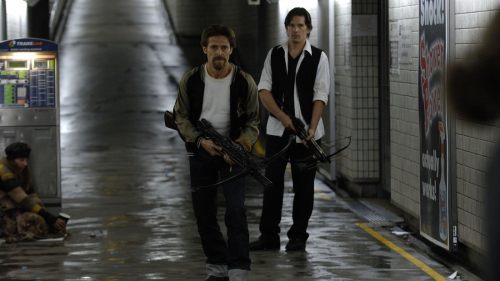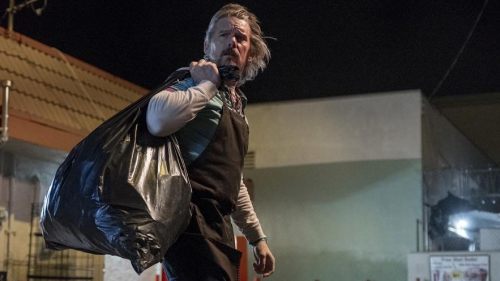DEAD POETS SOCIETY At 30: Thank You, O Captain! My Captain!
Do you remember the first time you saw your life reflected on screen? For me, it was in Peter Weir’s Dead Poets Society, which I suppose is a little funny considering it’s a movie about an all-boys school. Yet the moment Todd Anderson (Ethan Hawke) arrived at Welton Academy, too timid to speak or raise his hand in class, I felt a kinship with his character I’d never experienced before. Like Todd, I was a painfully shy kid. And by “painfully,” I mean I was crippled by it to the point where I couldn’t bring myself to speak to anyone but family, not even to order my own food at a restaurant. As I’m sure you can imagine, this made life super uncomfortable at school, a place that felt like an endless parade of my anxieties and shortcomings when all I wanted was to be invisible. Sure, there were teachers along the way who saw what I was going through and tried to encourage me, but as someone who always preferred the movies to reality, it was Mr. John Keating (Robin Williams) who changed my life.
Mr. Keating imparted many invaluable lessons to his students, but it’s what he teaches Todd that I’ve carried with me for a lifetime. “Mr. Anderson thinks that everything inside of him is worthless and embarrassing,” Keating announces to the class when Todd fails to write an original poem. Once again, making me feel seen. Immediately, we see the agony on the boy’s face over being singled out, a familiar feeling for those who lived in fear of being called on unexpectedly in class. From there, the pivotal scene becomes a master class in acting, as Williams and Hawke perform Tom Schulman’s beautifully written dialogue not just with words but with every movement, facial expression, and gesture playing out like a choreographed dance. Keating’s insistence that Todd compose an impromptu poem in front of his snickering peers changes not only the boy’s perspective of himself, but that of everyone else in the room. While they laugh at him at first, by the end they’re impressed by what he’s accomplished. From that moment on, he’s no longer the quiet weirdo in the corner, he’s the guy with more potential than anyone else in his class. Potential that Mr. Keating recognized and, more importantly, acknowledged before anyone else did: “Don’t you forget this,” he commands. Three decades later, I haven’t forgotten. And I never will.
If you were blessed with the confidence of Charlie Dalton (Gale Hansen) or the courageous spirit of Neil Perry (Robert Sean Leonard), then perhaps you never needed someone to push you to succeed. But for those like Todd, sometimes that’s all it takes. That one special person, be it a teacher, friend, or parent acknowledging there’s something extraordinary inside of us just waiting for us to grab it with all our might and “sound our barbaric YAWP over the rooftops of the world.” Back then, I was too young to understand the profound impact this film would have on my life. I only knew that nothing felt more true to me than Keating’s claim that, “Words and ideas can change the world.” His had certainly changed mine! I was inspired to start reading and writing poetry, slowly opening the door to finding my voice in the real world. Of course, things didn’t change overnight, and to this day I struggle with articulating my ideas and a lack of confidence in my own words. The difference is, I no longer allow fear to hold me back from speaking my mind, even if my voice still tends to shake from time to time.
Thanks to Mr. Keating’s class I learned to view the world, and myself, from a different perspective. But the film also taught us the powerful lesson that no matter how hard we try to improve ourselves and the world around us, we’ll always be faced with opposition. Nothing illustrates that fact more effectively than the heartbreaking ending of Dead Poets Society. While Keating is unjustly removed from his position as a teacher, he at least gets to leave his classroom with the knowledge that he succeeded in reaching the majority of his students. All the inspiration and promise of a better future is written on the face of every boy who stands on his desk to proclaim, “O Captain! My Captain!” The final shot is focused on Todd Anderson, the life most changed by Mr. Keating’s words and ideas. It’s an unforgettably touching conclusion, one that fills us with gratitude for all the teachers and mentors like John Keating in the world, helping us to realize our potential. Guiding and encouraging us to go out there every day and make our lives extraordinary. Carpe diem!



